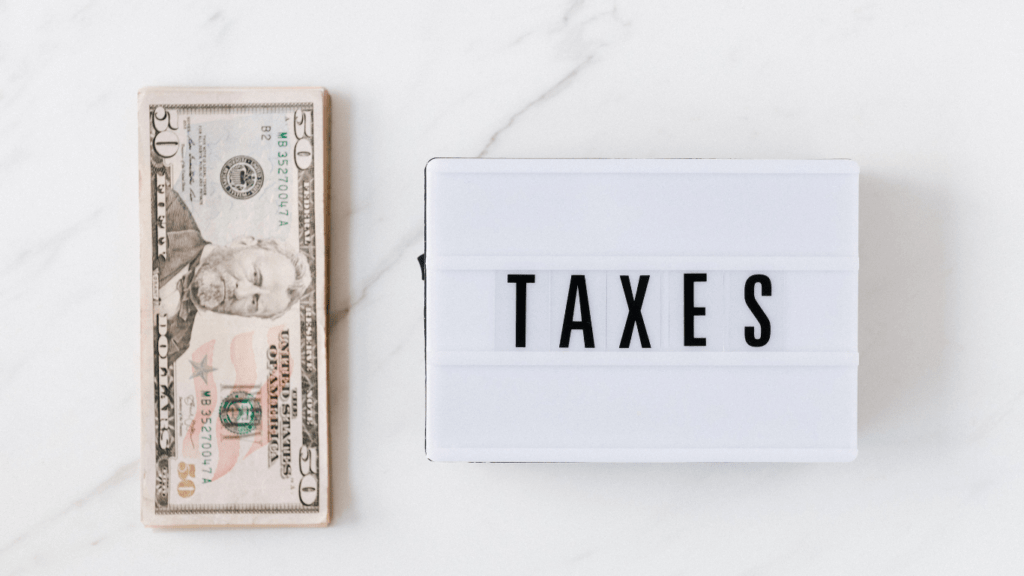Understanding NFTs and Tax Implications
Non-fungible tokens (NFTs) represent digital assets that are unique and verifiable using blockchain technology. NFTs can be anything from digital art, music, and videos to collectibles. The IRS classifies NFTs as property, which brings about significant tax implications for both creators and collectors.
Income Recognition for NFT Creators
Creators recognize income when they sell an NFT. The sale price, whether in fiat currency or cryptocurrency, gets reported as income. According to IRS guidelines, this income falls under self-employment income and incurs the corresponding tax liabilities. For instance, if an artist sells an NFT for $10,000, that amount needs reporting as income on their tax return. The artist must also consider the fair market value of the cryptocurrency received if the NFT sold in exchange for digital assets.
Capital Gains for NFT Collectors
Collectors face different tax implications. Buying an NFT constitutes a capital investment, and selling it later can result in either a capital gain or loss. The capital gain or loss is the difference between the purchase price and the sale price. For example, if a collector buys an NFT for $5,000 and sells it for $15,000, the $10,000 profit is subject to capital gains tax. The applicable tax rate depends on the holding period. Short-term gains (NFTs held for less than a year) are taxed at ordinary income rates, while long-term gains (held for more than a year) benefit from reduced tax rates.
Deductible Expenses and Record-Keeping
Both creators and collectors can deduct certain expenses related to NFTs. For creators, deductible expenses might include costs for software, platform fees, and marketing. Collectors might deduct expenses such as marketplace fees and storage costs. Accurate record-keeping is crucial for substantiating these deductions. Maintaining a detailed log of transactions, inclusive of purchase prices, sale prices, dates, and related expenses, simplifies tax filing and ensures compliance.
Impact of Cryptocurrency Transactions
NFT transactions often involve cryptocurrencies like Ethereum. The IRS treats crypto as property, meaning each transaction could trigger a taxable event. If a creator receives cryptocurrency for an NFT, the fair market value of the crypto at the time of receiving constitutes income. Similarly, collectors disposing of cryptocurrency to buy an NFT might incur a taxable event if the crypto appreciated in value since acquisition. For accurate tax reporting, tracking the fair market value of cryptocurrencies involved at each transaction point is essential.
Evolving IRS Guidelines
NFT tax regulations continue to evolve. Keeping abreast of IRS updates and seeking professional advice ensures compliance. The IRS frequently updates its guidelines to reflect the growing digital economy. Understanding these changes and adapting to new rules helps avoid penalties and ensures accurate reporting.
Understanding these tax implications is crucial for staying compliant and optimizing one’s tax strategy.
Tax Compliance for NFT Creators
Navigating tax compliance as an NFT creator involves understanding income reporting, deductions, and meticulous record keeping. Compliance ensures avoidance of penalties and maximization of tax efficiency.
Income Reporting
Creators must report income earned from the sale of NFTs. Revenue from primary sales, royalties, and any subsequent sales constitutes taxable income according to IRS guidelines. It’s critical to recognize this income in the year the sale occurs, using the fair market value of the cryptocurrency received. This income can be subject to self-employment tax, which funds Social Security and Medicare. Consulting a tax professional helps accurately determine taxable income.
Deductions and Expenses
Creators can deduct expenses directly related to their NFT projects. Allowable deductions include:
- Transaction Fees: Gas fees paid on blockchain platforms.
- Marketing Costs: Expenses for promoting NFTs.
- Software Subscriptions: Costs for design tools and platforms.
- Professional Services: Fees paid to accountants or legal advisors.
Maintaining detailed records of these expenses ensures they can be properly claimed on tax returns, reducing taxable income.
Record Keeping
Detailed record keeping is vital for NFT creators. Every transaction, from minting to subsequent sales, should be documented. Important records include:
- Transaction Dates: When NFTs are minted, sold, or transferred.
- Fair Market Values: Values of cryptocurrencies involved in the transactions.
- Expense Receipts: Proof of costs related to NFT creation and sales.
- Royalty Payments: Documentation of earnings from secondary market sales.
Using specialized accounting software tailored for cryptocurrency transactions can simplify record keeping and ensure all necessary records are available for tax filings.
Tax Compliance for NFT Collectors

NFT collectors face complex tax compliance issues due to the IRS classifying NFTs as property, similar to other digital assets. Understanding capital gains, record-keeping, and IRS guidelines is essential for accurate reporting and maximized tax efficiency.
Capital Gains and Losses
NFT sales trigger capital gains tax when collectors sell NFTs at a profit. Capital gains are determined by the difference between the NFT’s selling price and its acquisition cost. Holding periods influence tax rates: assets held for over a year are subject to long-term capital gains tax, while those sold within a year incur short-term rates, which align with ordinary income tax rates.
For instance, if I bought an NFT for $2,000 and later sold it for $5,000, my capital gain is $3,000. If held for over a year, the lower long-term capital gains rate applies. However, losses from NFT sales can be deducted against gains, reducing my taxable income.
Record Keeping Best Practices
Accurate record-keeping is crucial for NFT tax compliance. Collectors should document acquisition dates, purchase prices, selling dates, and sale prices. Tracking transaction fees, conversion rates, and cryptocurrency used during NFT transactions helps substantiate tax filings.
Maintaining a detailed spreadsheet can streamline this process. For each NFT, I log:
- Acquisition Date
- Purchase Price in USD and cryptocurrency
- Sale Date
- Sale Price in USD and cryptocurrency
- Transaction Fees
- Conversion Rates
Software applications like crypto tax calculators and blockchain explorers offer tools to automate record-keeping. These tools ensure precise data collection, making tax season less daunting. Consulting with tax professionals can further enhance accuracy and compliance.
Common Tax Challenges and Misconceptions
NFT creators and collectors often face numerous tax challenges and misconceptions. These issues can complicate the process of tax compliance in the ever-evolving NFT landscape.
Valuation of NFTs
Valuing NFTs is a significant tax challenge. The market for NFTs is volatile, leading to fluctuating prices. Determining the fair market value at the time of sale or acquisition is crucial for reporting income and gains accurately. For example, if I sell an NFT for 2 ETH, I need to document the ETH’s value in USD at the sale time. Misconceptions about how to value NFTs can result in incorrect tax reporting, leading to potential penalties.
Cross-Border Transactions
Cross-border transactions introduce additional complexities in tax reporting. NFT creators and collectors often participate in global marketplaces, involving multiple currencies and varying tax jurisdictions.
This scenario complicates the tax obligations, particularly when it comes to understanding local tax laws and potential double taxation issues. For me, navigating this requires keeping track of the tax regulations in both the origin and destination countries, ensuring compliance with international tax standards.
IRS Guidance
IRS guidance on NFTs remains limited, causing confusion among creators and collectors. The lack of specific IRS instructions means that many default to general cryptocurrency tax rules. For instance, the IRS treats NFTs as property, similar to cryptocurrencies, which subjects them to capital gains tax.
However, differing interpretations and evolving guidance can lead to misconceptions and inconsistent reporting practices. Staying updated with IRS notices and consulting tax professionals can help avoid these pitfalls.
Practical Tips for Navigating NFT Tax Compliance
Tax compliance in the NFT space presents unique challenges. Below are practical tips for navigating these complexities effectively:
Seeking Professional Help
Consulting a tax professional can significantly ease the burden of NFT tax compliance. Experts can help identify deductible expenses, correctly classify income, and optimize tax strategies. It’s advisable to choose professionals with experience in digital assets to ensure accurate and effective guidance.
Using Tax Software
Tax software tailored for cryptocurrency can simplify the NFT tax filing process. These programs help track transactions, calculate gains and losses, and generate necessary tax forms. I recommend choosing software that supports integration with multiple crypto exchanges and wallets for comprehensive record-keeping.
Staying Updated on Regulations
Tax laws related to NFTs are constantly evolving. Keeping abreast of the latest IRS guidelines, changes in tax legislation, and industry best practices is crucial. Subscribing to financial newsletters, joining relevant forums, and following expert blogs are effective ways to stay informed.

 Ricky Morenolendez is a key contributor at The Digi Chain Exchange, recognized for his deep expertise in cryptocurrency and blockchain technology. With years of experience in analyzing market trends and providing actionable insights, Ricky has become a trusted voice in the crypto space. His work focuses on helping investors understand the nuances of digital assets, from Bitcoin to emerging altcoins. Ricky’s dedication to educating the community on market strategies and crypto developments has made him an invaluable asset to The Digi Chain Exchange team.
Ricky Morenolendez is a key contributor at The Digi Chain Exchange, recognized for his deep expertise in cryptocurrency and blockchain technology. With years of experience in analyzing market trends and providing actionable insights, Ricky has become a trusted voice in the crypto space. His work focuses on helping investors understand the nuances of digital assets, from Bitcoin to emerging altcoins. Ricky’s dedication to educating the community on market strategies and crypto developments has made him an invaluable asset to The Digi Chain Exchange team.

